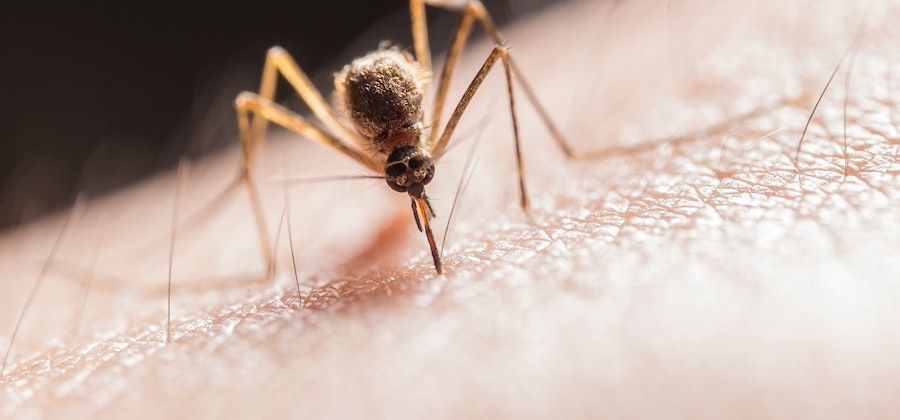Dengue fever, also known as breakbone fever, is an acute viral disease caused by any one of four related dengue viruses transmitted by the Aedes mosquito.
It was first isolated in Africa in the early 1900s and later spread to Asia and South America, reaching pandemic levels in the latter half of the 20th century; it has since become endemic in Latin America, the Caribbean and other tropical regions worldwide.
What is dengue?
Dengue fever is a mosquito-borne disease that affects millions of people each year. The symptoms can range from mild to severe, and in some cases can even be deadly.
Dengue is caused by a virus, and there is no specific cure. Treatment focuses on relieving symptoms and supporting the body as it fights the infection.
Prevention is key, and people living in or traveling to areas where dengue is common should take steps to avoid mosquito bites.
There are several ways to do this, including using mosquito nets and insect repellent. It’s also important for travelers to get vaccinated before visiting high-risk countries like India, Malaysia, Thailand, Venezuela, Brazil, El Salvador or Nicaragua.
Symptoms of dengue:
The most common symptoms of dengue fever are high fever, severe headache, pain behind the eyes, muscle and joint pain, and rash.
Dengue fever can lead to severe complications such as hemorrhagic fever and shock syndrome, so it is important to seek medical attention if you think you may have dengue fever.
There is no specific treatment for dengue fever, but there are some things that can be done to relieve the symptoms.
It is important to drink plenty of fluids and take medicines to reduce fever and pain. A blood transfusion may be necessary in cases where people develop a complication called hemorrhagic fever. It is also very important to avoid mosquito bites!
Dengue diagnosis:
If you think you have dengue fever, it is important to see a doctor right away. Early diagnosis and treatment is critical to preventing serious complications.
The symptoms of dengue fever can mimic those of the flu or other illnesses, so if you suspect that you might have the disease make sure to get tested for it.
Dengue is also known as breakbone fever because of the severe joint pain that comes with it. It usually starts one week after being bitten by an infected mosquito.
For most people, their fever lasts from 2-7 days, but some may not have any other symptoms. Other symptoms include headache, muscle and bone pain, rash (caused by fluid leaking from capillaries under the skin), nausea and vomiting, swollen glands in the neck or armpits.
Prevention:
Dengue fever is spread by the Aedes aegypti mosquito, which is most active during the day. Therefore, it is important to take precautions to avoid being bitten by this mosquito.
Wearing long-sleeves and pants, using mosquito nets and repellents, and staying in well-screened or air-conditioned rooms can help prevent dengue fever.
In addition, if you live in an area where dengue fever is prevalent, it may be wise to install window screens.
It is also important to keep containers of water (such as flower pots) covered so that mosquitoes cannot lay eggs in them.
Treatment of dengue fever:
There is no specific treatment for dengue fever and no vaccine to prevent it. The best way to treat the disease is to relieve the symptoms and pain.
Paracetamol or ibuprofen can be used to relieve fever and pain. Aspirin should not be used because it may increase the risk of bleeding.
If you have dengue fever, you should rest, drink plenty of fluids, and avoid aspirin. Your doctor may prescribe paracetamol (pain killer) or acetaminophen (pain killer).
Treatment usually lasts about five days. You should stay in bed and get as much rest as possible. Drink plenty of liquids such as juice, milk, water or tea without caffeine.
Eat light meals that are easy to digest like toast with peanut butter, soft fruits such as bananas or papaya and soup. Drink herbal teas such as chamomile tea if you have diarrhea from the infection.
Conclusion
Although dengue fever is often considered a relatively mild illness, it can occasionally lead to more serious complications, such as dengue hemorrhagic fever or dengue shock syndrome. Early diagnosis and treatment is important to avoid these complications. There is no specific cure for dengue fever and there is no vaccine available yet, but there are steps that can be taken to prevent the disease.
These include avoiding mosquito bites by wearing long sleeves and pants; staying in air-conditioned environments; using insect repellent on skin and clothing; removing standing water where mosquitoes breed; getting rid of any sources of stagnant water near your home; installing screens on windows and doors to keep mosquitoes out of your home. If you do contract dengue fever, you should seek medical attention immediately.
Related articles:
- Lassa fever: Causes, symptoms, diagnosis, prevention and treatments
- Tomato fever: Causes, symptoms, prevention and treatments
- Valley fever (coccidioidomycosis): Causes, symptoms, transmission, prevention and treatments
- What is Hay Fever? It’s Causes, Symptoms and Home Remedies!
- Rat bite fever: Causes, symptoms, treatment, and complications
